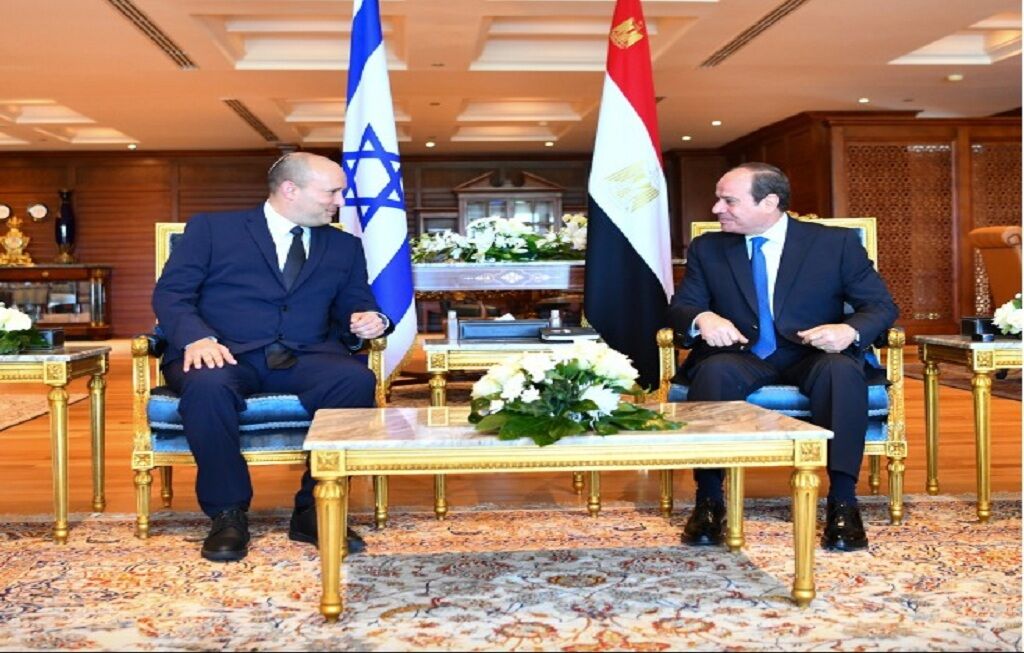Ali Abdi, speaking in an interview with the website of the Strategic Council on Foreign Relations, referred to the initial agreement between Egypt and the Zionist regime to implement “sensitive” reforms in the Camp David Accords, and recalling the symbolic dimension of the pact in the Arab-Israeli relations, said: Camp David, was the first formal agreement between an Arab country and the Israeli regime, in which the Zionist regime is officially recognized as a legitimate and legal regime, and it tries to establish peaceful or compromising relations with it and change relations with the Israeli regime from a state of conflict or even neither war nor peace to peace.
He added: The pact was established between Egypt and the Zionist regime when Egypt, in the sense of having the spiritual and political leadership, ruled over the Arab world and was at the forefront of the struggle with Israel throughout the region. Such measure practically removed Egypt from the ranks of the Arab countries fighting against Israel and turned it into a friend of the Zionist regime in a regrettable state.
The analyst of the Zionist regime’s affairs, saying that two issues should be considered as being effective in Egypt’s decision to amend the Camp David Accords, noted: A process that began in the late Trump era, in which some Arab countries began to reveal and normalize relations with the Israeli regime was influential in the type of Egypt’s relationship with that regime, and Egypt, in order not to lag behind the convoy, sought to update the Israeli regime’s acceptance treaty in accordance with the new conditions and requirements.
Abdi cited some security bottlenecks as another factor in Egypt’s decision to negotiate reforms in the Camp David Accords and said: According to this agreement, Egypt will not be able to control the Sinai Peninsula as it did before the occupation of Sinai in 1960 by the Israeli regime, and it will not be able to deploy troops there; on the other hand, after the emergence of ISIS in the region, Egypt suffered significant security problems from the Sinai region. Cairo, in order to cover such problems, needed to make changes to the terms of the Camp David Accords.
He continued: On the other hand, it is also pleasing for the Israeli regime to have a more open hand in Sinai with a new agreement; although the Israeli regime is already 100 percent involved with Cairo in the fight against the groups in Sinai, if the clauses of that agreement change, it will have benefits for the Zionist regime as well.
Abdi pointed to the impact of such changes on the situation in Gaza and the Rafah Crossing, adding: According to the published news, both sides want to increase their security forces in Rafah. In bilateral consultations between the two sides, overseen by the United States, they have sought to reach an agreement that could put more pressure on the Palestinian Resistance, especially in the Gaza Strip, and provide more control over Rafah, especially with a focus on transition of arms.
Saying that with such changes, the Palestinians will be in more trouble, however he said: The Palestinian Resistance has shown that such issues are not new to it; a resistance that, despite all the supervision and pressure, can still meet its needs, with the increase in such pressures, although will be in a tighter position, with its initiatives can overcome those problems as well.
The analyst of the Zionist regime affairs stressed: Israel is not in a position right now to start a new conflict. The Zionist regime is still not far from the experience of the 12-day war. With the cards the resistance turned up in that war; at present, the Israeli regime is not in a position to do anything, even with such agreements and pacts. The best way for the Israeli regime is not to create new conflicts for itself.
Abdi added: We should not forget that Netanyahu was overthrown after 12 years due to the defeat in the 12-day war. Given that Bennett is under intense pressure from the Likud opposition and Netanyahu himself, if he wants to start a new conflict, he will face the same fate, because he is in a very fragile situation.
He cited some analysis by the Egyptian government sources as saying that by tying up the amendments to the Camp David Accords, a relatively calm field situation could be reached in the Gaza Strip and the possibility of reaching a lasting ceasefire agreement that could last more than 10 years will be provided, adding: In the event of a conflict, they are trying to show the resistance as the culprit.
The expert on Israel affairs continued: The Palestinian Resistance is also reluctant to enter into a new conflict, because they are damaged and see it anyway; but they are so independent in their decisions that they take action if they deem it necessary, and such measures cannot capture the resistance.










0 Comments